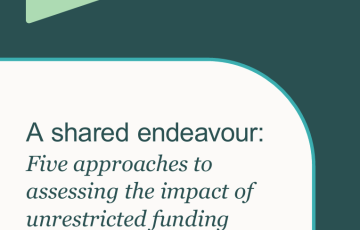We take a knee with London’s communities: Black Lives Matter.
Southwark Community Response Fund, with support from Peter Minet Trust, is part of the London Community Response Fund @ London Funders. We share their commitments to tackling endemic racism and inequalities in London.
London Funders' Statement:
We know that the covid-19 pandemic is having a devastating impact on Black, Asian and minority ethnic communities – through the distressing loss of life, and the social and economic impact of the crisis.
We understand that there were structural inequalities and injustices before the start of this crisis, and that these will increase at this time without positive action.
We recognise that organisations led by Black, Asian and minority ethnic people have not had investment and support to grow due to previous funding approaches.
We hear the voices of Black, Asian and minority ethnic people and communities sharing their experiences, their hopes and their fears, and we commit to supporting people and the work needed to achieve justice through our funding programmes.
We are proud to be working in partnership with equity and inclusion groups who are challenging us to do better as a funding community and helping set the strategic direction of the London Community Response – we welcome the critical role they play in this process.
We commit to putting equity and inclusion at the heart of the London Community Response, and beyond, so that we can work together on this journey towards a fairer future.
We will take action together through the London Community Response by:
- Funding groups fairly for their time where we ask for expertise, insight and support to get it right on equity and inclusion as a partnership;
- Designing funding criteria that reflect the asks of the communities we wish to serve, trusting the expertise of Black, Asian and minority ethnic communities;
- Ensuring our funding application processes are as accessible as possible, and that groups are provided with support to overcome barriers that exist;
- Transparently reporting on the proportion of funding that is given to groups led by Black, Asian and minority ethnic people and communities;
- Resourcing partners representing Black, Asian and minority ethnic communities to act as critical friends to us, and seeking to ensure we are sharing power through genuine partnership; and
- Sharing our learning as we go, recognising that we will not always get things right, but that it is only through listening and understanding that we will improve.
Why are we releasing this statement?
We’re sharing this now to highlight the role we can play at this time, specifically through our work on the London Community Response funding partnership supporting communities in London affected by covid-19.
We know that the facts speak for themselves. The latest report from Public Health England on how different factors have affected covid-19 risk and outcomes shows that: compared to the same time period in 2019, deaths in Black males were 3.9 times higher than expected, deaths have been 2.9 times higher in Asian males and 1.7 times higher in White males. Among females, deaths were between 2.7-2.8 times higher in Black, Mixed and Other ethnic groups in this period, compared with 2.4 in Asian and 1.6 in White females.
We’ve been listening carefully to groups through the London Community Response, and have heard that for Black and minoritised women and girls, racialised discrimination and the disproportionate impact of structural inequalities has also become exacerbated and that there are groups for whom the virus represents a ‘widening of the gap’ between them and the essential services and support needed to stay well and healthy. We’re grateful to be working with Ubele, amongst others, and their intelligence has helped to guide the strategy and shape of the London Community Response.
We’re also pleased to hear voices calling for change across the sector, including: #CharitySoWhite, Future Foundations and the Resourcing Racial Justice Fund. We will continue to amplify their work, and share their advice on how we can be an ally to movements for justice.




